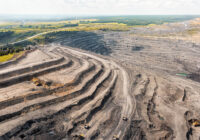Europe has introduced a new set of rules for the financial sector focused on sustainability, social and environmental change. The Sustainable Finance Disclosure Regulation was designed to increase transparency in sustainable investment markets and covers a broad range of environmental, social and governance (ESG) metrics. This is good news, of course, perhaps long overdue, some would argue.
The SFDR came into effect in March 2021 as a fundamental aspect of the European Commission’s sustainable finance agenda. The draft regulation, drawn up in November 2019, “lays down harmonised rules for financial market participants and financial advisers on transparency with regard to the integration of sustainability risks and the consideration of adverse sustainability impacts in their processes and the provision of sustainability‐related information with respect to financial products.”
In short, the regulation obliges financial asset managers, financial institutions and other actors providing financial services to disclose their approach to ESG considerations during their decision making processes. The idea is to encourage investors and asset managers to pay more attention to sustainability risk, environmental concerns and allay fears of greenwashing.
Changes and challenges
SFDR has certainly changed the ecosystem of many capital markets, but some investment houses have found that reporting has remained optional. They are, however, certainly aware that falling behind in the widespread push for ESG transparency could mean missing out on opportunities for capital raising and real sustainable value creation. The sustainable investment boom is here to stay, and with increased public scrutiny on private firms’ ESG practices, there is nowhere to hide for companies with weak credentials. A classic example of this development is Deliveroo’s recent IPO flop.
Isn’t It Time to Challenge the Growth Paradigm?
The European Union’s push for greener business practices and net-zero targets has only increased the pressure on the financial sector to do its bit. Along with the EU Taxonomy Regulation and the Corporate Sustainability Reporting Directive (CSRD), the SFDR is part of the EU’s sustainable finance framework that has been designed to support the European Green Deal, which aims to channel private investment towards the transition to a climate-neutral economy.
More specifically, the SFDR focuses on entity-level disclosure obligations, divided into three main areas. They are as follows:
- the integration of sustainability risks in the investment decision-making and advisory process,
- principle Adverse Impacts (PAIs) of investment decisions on sustainability factors, and
- transparency of information for products that either advertise their ESG characteristics (Article 8) or describe themselves as sustainable investments (Article 9).
Of course, these new rules have made waves in financial circles, not least in the private equity sphere. For many, they remain vague and open to interpretation, which has often led to generic and qualitative disclosures. The sector is still lacking in high quality, detailed industry guidance and quantitative data on ESG impact for investments.
ESG is not that new
With Europe quickly catching up and applying regulative measures regarding ESG on the financial sector, some firms have proven to be more prepared than others. Sustainable investing is of course not new, but for years it was considered high risk and low yield. This is no longer the case, with real value creation being found in companies whose ecological focus and social commitments remain high strategic priorities.
Should PR Agencies Not Represent Fossil Fuel Clients?
In the private equity sphere, ESG has been mainstreamed thanks to the growing realization that values creation and sustainability can go hand-in-hand. According to Anna Follér, Head of Sustainability, Sixth Swedish National Pension Fund, “basic ESG integration in private equity is a question of good hygiene, while advanced ESG integration offers a competitive edge. The private equity model is particularly well-placed to embrace ESG.” This is due to both collaboration and better access to reliable data, both of which “underpin robust ESG frameworks.” Private equity’s basic tenet, to build a better business than the one they bought in order to create value, is well adapted to creating sustainable growth on an upward trajectory.
Dominique Senequier, the CEO and founder of Ardian, the French private equity house making waves on the international scene, has long understood the potential of PE to be at the forefront of a global move towards sustainable investment. Back in 2020, the firm launched a Sustainable Measurement Methodology in order to quantify and analyze the environmental impact and sustainability outlook of its portfolio companies. According to Candice Brenet, the head of sustainability and managing director at Ardian, “we observed that management teams generally wanted to work on sustainability issues.”
“For 14 years Ardian has been gaining expertise in sustainability and arguing that finance must be a force for good. The instability that has rocked Europe in 2022 might encourage some to relax their focus on sustainability, at least temporarily. That would be a mistake. We are fully committed to our vision of Ardian as an agent of positive change”, said Dominique Senequier.This is because sustainability is now a key driver of value: “There is no contradiction of sustainable investments and sustainable returns, quite the opposite actually,” as Thomas Gottstein, CEO of Crédit Suisse put it. Indeed, the numbers support this assertion. Morningstar research focused on the long-term performance of 745 Europe-based sustainable funds has shown that the majority have done better than non-ESG funds over one, three, five and ten years.
The views expressed in this article are the author’s own and do not necessarily reflect Fair Observer’s editorial policy.
Support Fair Observer
We rely on your support for our independence, diversity and quality.
For more than 10 years, Fair Observer has been free, fair and independent. No billionaire owns us, no advertisers control us. We are a reader-supported nonprofit. Unlike many other publications, we keep our content free for readers regardless of where they live or whether they can afford to pay. We have no paywalls and no ads.
In the post-truth era of fake news, echo chambers and filter bubbles, we publish a plurality of perspectives from around the world. Anyone can publish with us, but everyone goes through a rigorous editorial process. So, you get fact-checked, well-reasoned content instead of noise.
We publish 2,500+ voices from 90+ countries. We also conduct education and training programs
on subjects ranging from digital media and journalism to writing and critical thinking. This
doesn’t come cheap. Servers, editors, trainers and web developers cost
money.
Please consider supporting us on a regular basis as a recurring donor or a
sustaining member.
Will you support FO’s journalism?
We rely on your support for our independence, diversity and quality.







Comment